
The newsletter of UCL Library Services - Issue 20: Autumn term, 2008
Inside this issue
|
Editorial board members:
Elizabeth Chapman, Chris Carrington, Deborah Furness, Nova Larch, Elizabeth Lawes, Grazia Manzotti, Dayaram Nakrani, Ruth Russell & Margaret Stone.
:: Contact the editorial board
|
* Top Tip! *

In addition to the paper copies of Encyclopaedia Britannica that we hold we also have access to Britannica Online which has an enormous amount of additional material because it is updated frequently. As well as the traditional authoritative articles you will find a lot of photos, illustrations, and multi-media clips, much of which you can use in your essays. Investigate it alongside many other resources in the Databases A-Z list.
For more information on general reference resources see the Reference web pages or contact Debs Furness.
|
Welcome
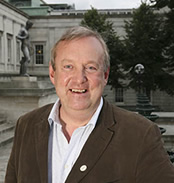 To those staff and students who are returning to UCL, and to all those who are starting their academic careers with us this year, I send you a warm welcome on behalf of all my colleagues in UCL Library Services. UCL Library Services is one of the major library collections in the United Kingdom. We have materials on 16 sites, offer electronic access to hundreds of thousands of electronic books and electronic journals, and open 24 hours a day in some of our libraries in the run-up to exams in the third term. In the UCL Science Library, we have just opened the UCL Learning Laboratory for group and project work, giving access to the biggest computer cluster in UCL, and we have just introduced self-issue for Science Library materials using Radio-Frequency Tagging technology. We look forward to meeting you and to you using our facilities and services.
To those staff and students who are returning to UCL, and to all those who are starting their academic careers with us this year, I send you a warm welcome on behalf of all my colleagues in UCL Library Services. UCL Library Services is one of the major library collections in the United Kingdom. We have materials on 16 sites, offer electronic access to hundreds of thousands of electronic books and electronic journals, and open 24 hours a day in some of our libraries in the run-up to exams in the third term. In the UCL Science Library, we have just opened the UCL Learning Laboratory for group and project work, giving access to the biggest computer cluster in UCL, and we have just introduced self-issue for Science Library materials using Radio-Frequency Tagging technology. We look forward to meeting you and to you using our facilities and services.
Best wishes,
Paul Ayris
Director of UCL Library Services
Science Library self-service loans
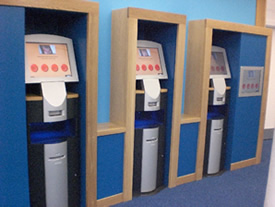 We welcome our Science Library users to the new UCL Science Library Learning Laboratory: a mix of spaces for computing, private and group study and services. Among other developments, users can now avoid queues and speed the process of borrowing, renewing and returning books at 5 service points in the area on the ground floor.
We welcome our Science Library users to the new UCL Science Library Learning Laboratory: a mix of spaces for computing, private and group study and services. Among other developments, users can now avoid queues and speed the process of borrowing, renewing and returning books at 5 service points in the area on the ground floor.
The self-service points allow you to:
- borrow several books in a single quick transaction
- return books
- renew loans
- check your account
The high-speed equipment means that you can choose not to queue at our traditionally busy Issue Desk, though staff will still of course be available to help you there, at a smaller Issue Desk and nearby. Do try the equipment out next time you visit.
From Monday 6 October 2008, planned hours of operation will be:
- Monday-Thursday: 0900-2200
- Friday: 0900-1845
- Saturday: 1100-2045
- Sunday: 1100-2045
by Vincent Matthews
Get WISE with Moodle!
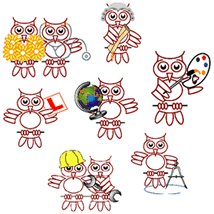 WISE, the library's comprehensive guide to finding and using information, is now available in Moodle. Whether you're a new student or an experienced researcher, WISE can help you to discover the most valuable information for your topic, and help you make the best use of it!
WISE, the library's comprehensive guide to finding and using information, is now available in Moodle. Whether you're a new student or an experienced researcher, WISE can help you to discover the most valuable information for your topic, and help you make the best use of it!
If you're new to academic work, have a look at WISE for Beginners, which introduces information skills and will get you started on searching for information.
The other WISE modules take you beyond the basics and approach information skills from a subject perspective. All areas of information skills are covered, including preparing a search strategy, using complex online databases, assessing the quality of information, managing and citing your references and avoiding plagiarism. You can work through the module for your faculty or dip in and out where necessary.
Previous users will notice that with the move to Moodle existing WISE modules have been given a new look, with simplified navigation and the introduction of interactive tutorials. More interactive elements will be added soon, including opportunities to test your skills and log your progress. We also see the launch of a new module, WISE for Mathematical and Physical Sciences, which now sits alongside the modules for Arts and Humanities, Biomedical and Life Sciences, Engineering and the Built Environment and Social and Historical Sciences.
To access WISE, go to http://www.ucl.ac.uk/moodle and log in with your UCL userid. From the list of All courses..., select WISE - Information Skills from UCL Library Services. Then select the WISE module of your choice.
For more information, to give us your feedback, or to learn how to integrate WISE with your own Moodle course:
- Contact Angela Jefkins
by Angela Jefkins
Charles Darwin of Gower Street
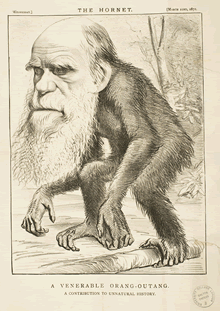 Our new exhibition for the Main Library staircase honours Charles Darwin, who lived in a house on the site now occupied by UCL's Darwin Building from 1839-1842, just over two years after his return from H.M.S. Beagle's second voyage. It has been 26 years since UCL Library Services last held an exhibition about Darwin, and the Darwin200 celebrations, marking the bicentenary of his birth and 150 years since the publication of On the origin of species, provide a new opportunity to showcase items from UCL Special Collections.
Our new exhibition for the Main Library staircase honours Charles Darwin, who lived in a house on the site now occupied by UCL's Darwin Building from 1839-1842, just over two years after his return from H.M.S. Beagle's second voyage. It has been 26 years since UCL Library Services last held an exhibition about Darwin, and the Darwin200 celebrations, marking the bicentenary of his birth and 150 years since the publication of On the origin of species, provide a new opportunity to showcase items from UCL Special Collections.
The materials selected for this exhibition illustrate Darwin's life, work and the influence of his ideas about inheritance and evolution on his contemporaries and successors, including eminent UCL people. UCL's long association with the development of genetics stems from this period, and several exhibits come from the personal libraries and papers, held by UCL Library Services, of Sir Francis Galton, Darwin's cousin, and Karl Pearson, first Galton Professor of Eugenics.
The exhibition will be on display from September 2008 to January 2009. Additionally, a digital version of the exhibition will be created during the Autumn term, and this will be permanently 'on display' through the Library's Exhibitions Online Web site.
by Kate Cheney
Hertfordshire Natural History Society collection
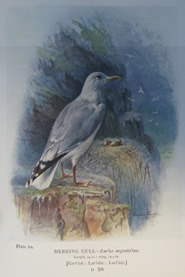 We are pleased to announce that the Hertfordshire Natural History Society collection, which the Society deposited at University College London in 1935 and which comprises some 1300 items, has now been added to the Explore catalogue.
We are pleased to announce that the Hertfordshire Natural History Society collection, which the Society deposited at University College London in 1935 and which comprises some 1300 items, has now been added to the Explore catalogue.
This collection, published mostly in English and with a publication date range of 1671 to 1993 (though mostly within the 19th century) reflects the widest definition of 'natural history'. It includes not only the study and observation of living plants and animals, their ecosystems, habitats and distribution, but also a study of all things in the natural world including geology, meteorology and paleontology. Coverage ranges from the general (plants and animal classification and nomenclature, elementary meteorology), to the national (history of British butterflies, grasses in Scotland) and local (Gilbert White's Natural history of Selborne, flora of Herefordshire). In addition the collection contains the records of field clubs, whose areas of interest extend to archeology and local history. Most of the material is concerned with the natural history of the British Isles, although there are some works, particularly marine biology and ecology, which go further afield.
Much of the collection, particularly the serials, consists of the records of local natural history societies - largely comprised of amateur naturalists - from the 17th century to the present day, and includes painstakingly observed and listed inventories of local flora and fauna, as well as local meteorological data. This makes them a valuable record of the distribution and changing patterns of plants, animals and local climate in the UK.
Parts of the collection also provide a visual feast. For much of the early period of the existence of these societies the camera didn't exist, so the skill of illustration was extremely important in establishing what these fauna and flora looked like for members who needed to be able to recognise what they were looking for and do an accurate count. The resulting woodcuts, copper plates and watercolours are extremely impressive, both as records of living wildlife, and as works of art in their own right.
If you'd like to browse the titles in the catalogue go to http://www.ucl.ac.uk/library/explore and type 'HNHS' as the classmark in a 'Multi-field' search
by Kylia Eastwell & Bill Lehm
Profile - Breege Whiten: Self-service Project Implementation Officer
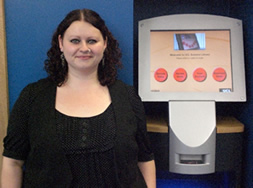 I've been working in UCL Library Services for nearly nine years in various different roles. I can usually be found at the Language and Speech Science Library in my role as Issue Desk Head, however at present I have been seconded to help project manage the installation of self-service technology in the Science Library. I started off my library career as a shelver whilst studying for my undergraduate degree in classical music. After graduating I decided to get a job as a library assistant as a stop gap until I found out what I really wanted to do. After a year at SOAS and a few more years at UCL I finally decided that Librarianship was the career for me. So in 2005 I completed a Masters in Library and Information Studies, after which there was no going back! I thoroughly enjoy working in libraries, mainly because it's an ethical career choice, but also working for UCL Library Services where the emphasis is on excellent service provision for students and where I have had the chance to work with some of the best library staff in the field.
I've been working in UCL Library Services for nearly nine years in various different roles. I can usually be found at the Language and Speech Science Library in my role as Issue Desk Head, however at present I have been seconded to help project manage the installation of self-service technology in the Science Library. I started off my library career as a shelver whilst studying for my undergraduate degree in classical music. After graduating I decided to get a job as a library assistant as a stop gap until I found out what I really wanted to do. After a year at SOAS and a few more years at UCL I finally decided that Librarianship was the career for me. So in 2005 I completed a Masters in Library and Information Studies, after which there was no going back! I thoroughly enjoy working in libraries, mainly because it's an ethical career choice, but also working for UCL Library Services where the emphasis is on excellent service provision for students and where I have had the chance to work with some of the best library staff in the field.
My current role is quite varied and includes overseeing the installation of the new self-service technology in the Science Library. This has been taking place over the summer vacation, so that it was ready for the start of term. We have installed three self-issue and renew kiosks and two self-return points, all located near to the entrance for quick and easy access. The models we have installed are the latest version on the market and will allow users to issue several books at a time, return items instantly and get printed receipts of items on their account, without needing to queue at an Issue Desk.
UCL Library Services has decided to invest in this new technology to help provide a better service for library users, including faster issues, renewals and returns and more library staff available to help users with enquiries and problems. For more information, please come and visit the Science Library and have a go!
by Breege Whiten
Spotlight on... Cruciform Library
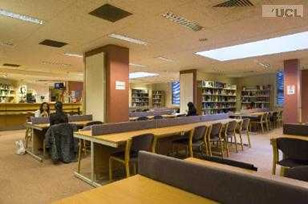 Where is the Cruciform Library? It is a question that we are often asked - especially if you have been searching the Library Catalogue for a book or journal in the biomedical subject areas and have seen 'Cruciform' as a location. Well, if you are based at the Bloomsbury campus we are actually closer than you think - situated in the basement of the Cruciform Building on Gower Street, just opposite the Main Entrance to UCL.
Where is the Cruciform Library? It is a question that we are often asked - especially if you have been searching the Library Catalogue for a book or journal in the biomedical subject areas and have seen 'Cruciform' as a location. Well, if you are based at the Bloomsbury campus we are actually closer than you think - situated in the basement of the Cruciform Building on Gower Street, just opposite the Main Entrance to UCL.
The Cruciform Building is the former University College Hospital building which closed in 1993. After extensive refurbishment it was reopened in 1999 with new teaching and learning facilities, laboratories and offices for the Wolfson Institute of Biomedical Research and of course a new library. Many of our visitors comment on how surprised they are to find a light, modern library in the basement of an Edwardian building.
In 2005 the new 16 storey University College Hospital building on Euston Road opened. As a result of this the Boldero Library of Middlesex Hospital closed and the Cruciform Library now holds the combined collections. A history of these libraries, entitled 'Reading Medicine', traces their development within the Middlesex Hospital, University College Hospital and Royal Free & University College medical schools up to their merger in 2005.
The Cruciform Library holds materials in all biomedical subjects and is a substantial resource of current medical literature jointly serving NHS and UCL's staff, students and researchers. The library receives about 300 current journals in print (not forgetting there is also access to the many thousands of electronic journals UCL subscribes to), has over 25,000 books and a good collection of multi-media resources.
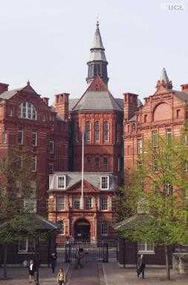 The library has its own cluster room with 13 PCs, 240 study spaces and RoamNet access for laptops. 2 PC terminals are available for our NHS readers to gain in-library access to the many e-journals and databases that UCL Library Services subscribes to.
The library has its own cluster room with 13 PCs, 240 study spaces and RoamNet access for laptops. 2 PC terminals are available for our NHS readers to gain in-library access to the many e-journals and databases that UCL Library Services subscribes to.
There is a dedicated Enquiry Desk which is staffed 10am-5pm weekdays (10am-3pm on Wednesdays). Our helpful and knowledgeable Enquiry Desk staff can deal with a variety of enquiries about the library and biomedical and health resources, and can provide specific training on the library's electronic resources - either on a one-to-one basis or for small groups. You can email your enquiries to us at lib-crucienq@ucl.ac.uk, telephone 020 7679 6411 or visit in person.
We deliver a coordinated induction program to our new medical students working closely with Archway Healthcare Library and the Royal Free Medical Library. We also run tours of the library at the beginning of each academic year. In the near future we are planning to launch a series of lunchtime training sessions covering databases, web resources and keeping up to date with the medical literature, which are open to all our readers, be they undergraduate or postgraduate students, researchers, academics or NHS staff - all are welcome. Please contact the Cruciform Library for more details.
Most importantly we endeavour to keep abreast of the latest developments in biomedical information which will help enhance and improve our collection and services and are pleased to receive suggestions for new books and other resources.
So that tells you a bit about us, but if you want to know more why not pay us a visit?
by Julia Garthwaite
 Top of page Top of page
Issue 20 - Autumn term, 2008
|

